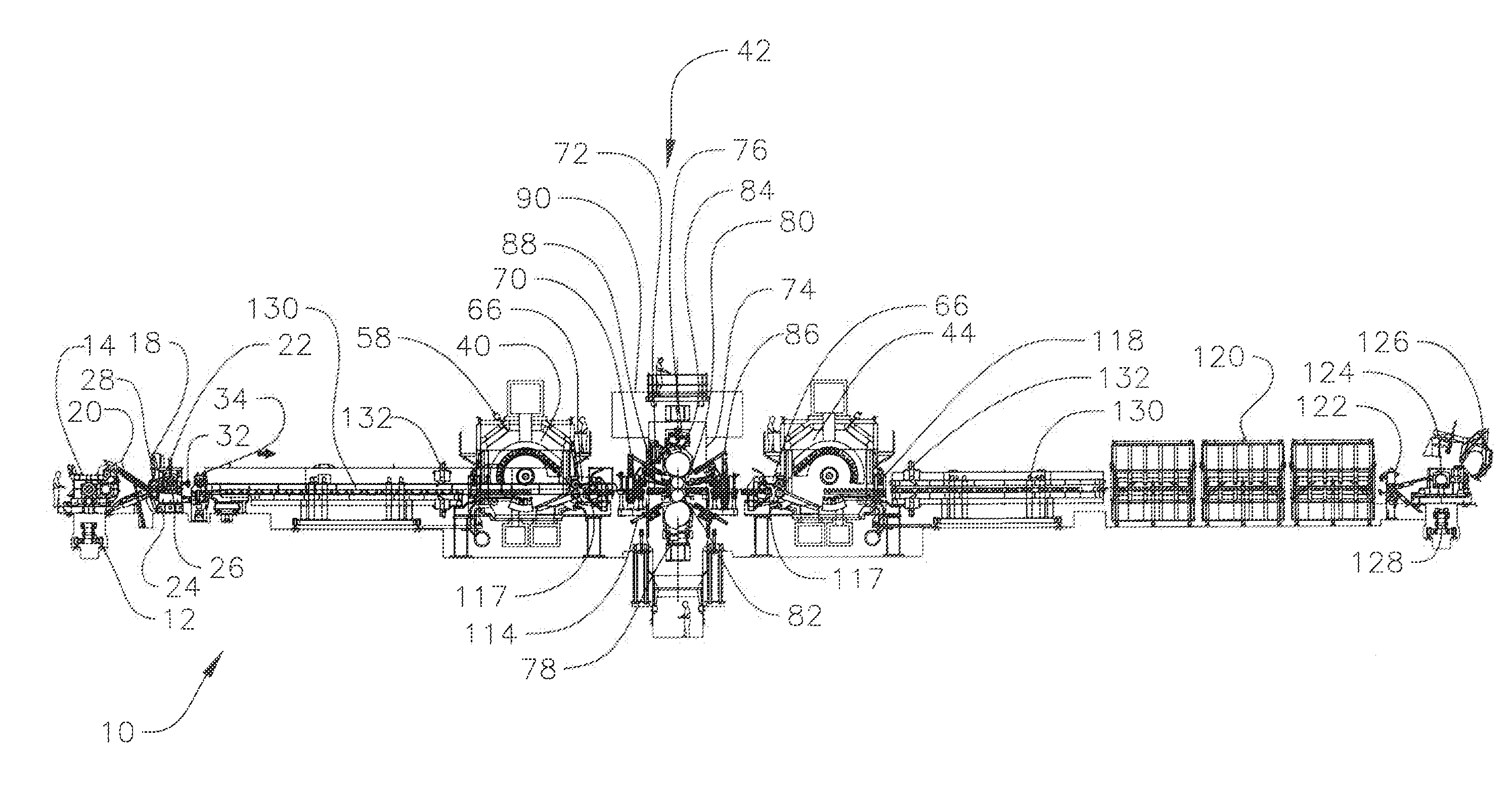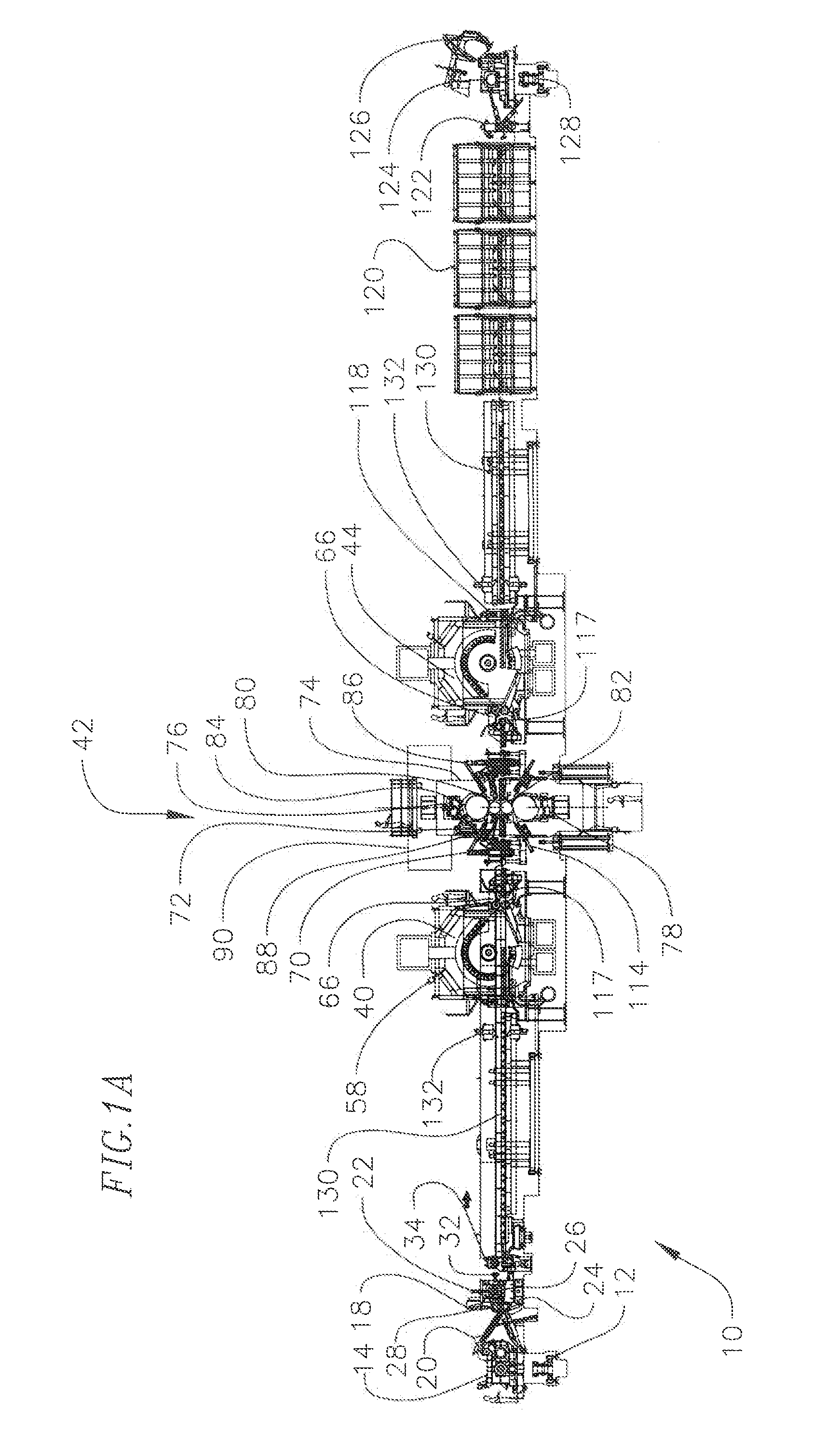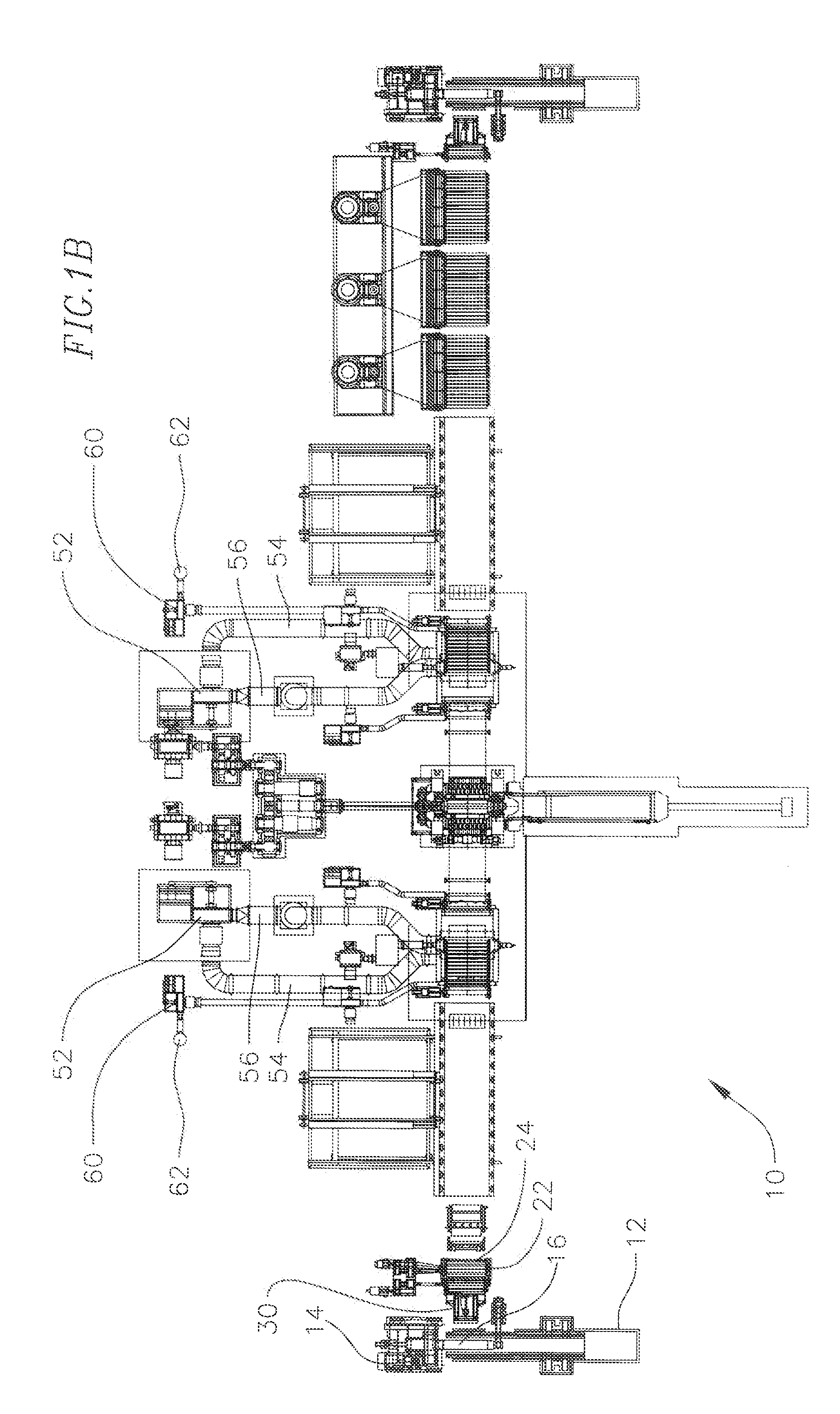Magnesium roll mill
- Summary
- Abstract
- Description
- Claims
- Application Information
AI Technical Summary
Benefits of technology
Problems solved by technology
Method used
Image
Examples
Embodiment Construction
[0023]Referring to FIGS. 1A and 1B, an exemplary magnesium rolling mill 10 of the present invention is illustrated. The magnesium rolling mill 10 is a plate or coil rolling mill having independent pay off reel and unloading or rewind reels. The mill 10 includes an entry coil car 12 to receive a warm or cold magnesium coil from storage which loads it to a pay off reel 14. From a storage and cooling area, the coils to be rolled are loaded onto coil storage saddles using an overhead crane. The coil saddles straddle a coil car pit. The coil car 12 travels perpendicularly to the rolling direction to collect the coil from the coil storage saddles. The coil is picked up by the coil car, and traversed to the pay off reel 14. The coil car moves by a hydraulic motor and lifts the coil by a hydraulic cylinder. Laser sensors are used to monitor the lift and trends verse position of the coil car in order to automate the coil handling cycle. The coil car runs on rails.
[0024]The pay off reel 14 ha...
PUM
| Property | Measurement | Unit |
|---|---|---|
| Temperature | aaaaa | aaaaa |
Abstract
Description
Claims
Application Information
 Login to View More
Login to View More - R&D
- Intellectual Property
- Life Sciences
- Materials
- Tech Scout
- Unparalleled Data Quality
- Higher Quality Content
- 60% Fewer Hallucinations
Browse by: Latest US Patents, China's latest patents, Technical Efficacy Thesaurus, Application Domain, Technology Topic, Popular Technical Reports.
© 2025 PatSnap. All rights reserved.Legal|Privacy policy|Modern Slavery Act Transparency Statement|Sitemap|About US| Contact US: help@patsnap.com



